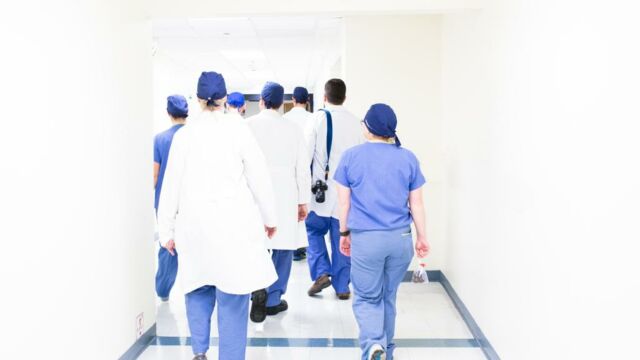From February 4, all frontline unvaccinated staff will be summoned to formal meetings and warned that they may be fired. According to NHS England guidance, notices will be sent from February 4 onwards and the notice period ends on March 31.
Discover our latest podcast
More than 80,000 NHS employees are still unvaccinated, accounting for 6% of the entire workforce. According to the Government's own predictions from last year, the change might result in the loss of 73,000 healthcare professionals. According to unions, the 'no jab, no job' policy, will have a catastrophic impact on the health sector if implemented in April.
Workers on a timeline
By April 1, all frontline workers must have received both doses of the Covid vaccine, which means the first dosage must be administered by February 3. Managers have been told that unvaccinated doctors can be moved away from the front lines and into positions that do not require direct patient interaction. Bosses will not be required to assist employees in finding suitable alternative employment, and no redundancy payments will be offered to fired individuals. The document confirms,
It is important to note this is not a redundancy exercise. In the context of the regulations, there is no diminishment or cessation of work of a particular kind.
Employers will not be concerned with finding “suitable alternative employment” and there will be no redundancy entitlements, including payments, whether statutory or contractual, triggered by this process.
If workers do not sign up for the vaccine in the next two weeks, certain hospitals may lose more than one out of every ten employees. Almost every one of the top 30 NHS trusts with the lowest vaccine uptake among employees is located in London or Birmingham.
Staffing crisis on the way
The NHS cannot afford to lose experienced and skilled workers. According to medical trade unions, the programme should be delayed, giving hospitals more time to urge employees to come forward for an injection. The NHS Confederation has stated that frontline hospital personnel will be driven out of their jobs. And that will result in significant capacity gaps at a time of tremendous strain and patient demand.
The NHS warned earlier this month that one in every five beds is occupied by patients who are medically fit to go but cannot due to a lack of social care support. Before the pandemic, there were already concerns about health worker shortages, with the NHS short by some 100,000 people. On January 9, 40,000 workers were isolated for Covid-related causes, and hospitals declared staffing emergencies during the previous month due to the increased number of absences.















